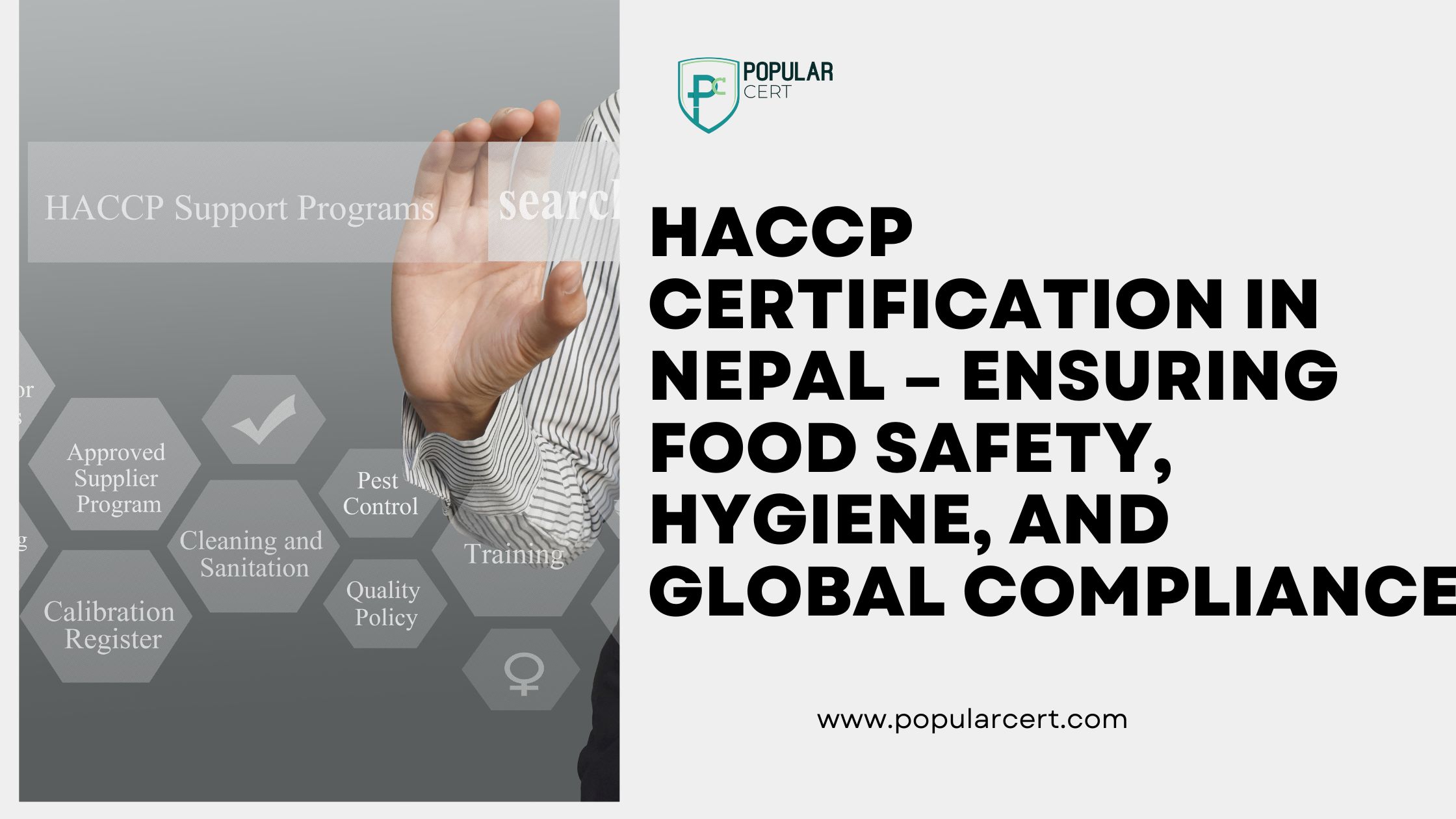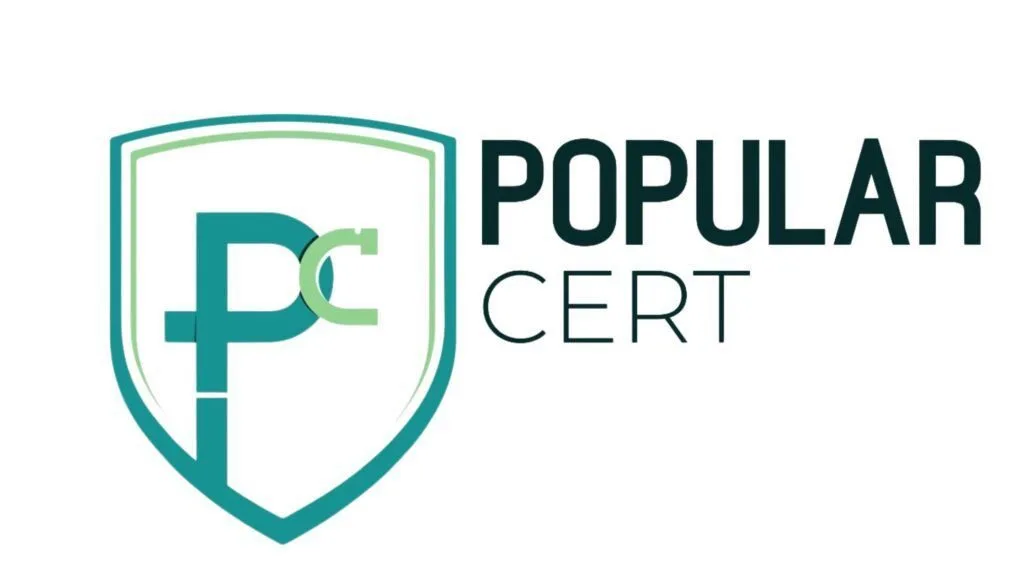HACCP Certification in Nepal – Ensuring Food Safety, Hygiene, and Global Compliance

Nepal’s food sector is evolving rapidly—driven by growing consumer awareness, expanding exports, and increasing demand for safer, cleaner, and high-quality food products. In this context, HACCP Certification (Hazard Analysis and Critical Control Point) plays a vital role in ensuring food safety across all stages of the supply chain—from farm to fork.
Whether you’re a food processor in Kathmandu, a dairy manufacturer in Pokhara, or a catering service provider in Chitwan, implementing HACCP helps you build consumer trust, meet regulatory compliance, and access global markets.
What is HACCP?
HACCP (Hazard Analysis and Critical Control Points) is a systematic approach to identifying, evaluating, and controlling food safety hazards. Developed by NASA in the 1960s to ensure safe food for astronauts, today HACCP is an internationally recognized system applicable across the entire food supply chain.
HACCP is based on 7 core principles:
- Conduct a hazard analysis
- Identify critical control points (CCPs)
- Establish critical limits for each CCP
- Establish monitoring procedures
- Establish corrective actions
- Establish verification procedures
- Establish record-keeping and documentation
Why HACCP Certification is Important in Nepal
Nepal’s food sector—including agriculture, hotels, restaurants, street food vendors, and food exporters—has seen rapid growth. However, outbreaks of foodborne illness, poor hygiene in food handling, and lack of awareness are still prevalent. HACCP certification provides a structured system to prevent contamination, meet legal standards, and improve customer trust.
Key reasons to get HACCP certified in Nepal:
- Boost consumer confidence
- Meet national and international regulations
- Open doors to global trade (especially with EU, USA, and Gulf countries)
- Reduce food recalls and wastage
- Train your staff on food hygiene
- Stand out from competitors
Types Of Certification
- ISO Certification
- ISO 9001 Certification
- ISO 14001 Certification
- ISO 45001 Certification
- ISO 22000 Certification
- ISO 27001 Certification
- ISO 17025 Certification
- ISO 13485 Certification
- ISO 20000-1 Certification
- ISO 22301 Certification
- ISO 50001 Certification
- ISO 37001 Certification
- IATF 16949 Certification
- ISO 29001 Certification
- ISO 31000 Certification
- ISO 20121 Certification
- ISO 10002 Certification
- ISO 41001 Certification
Get Free Consultation
Our Clients


















Industries in Nepal that Need HACCP
HACCP Certification benefits businesses in the following sectors:
Sector | How HACCP Helps |
Food Processing | Ensures clean, hazard-free manufacturing and packaging. |
Hotels & Restaurants | Improves kitchen hygiene and reduces contamination risk. |
Catering Services | Helps meet tender and corporate compliance requirements. |
Bakeries & Dairies | Controls spoilage and ensures product consistency. |
Meat, Poultry & Seafood | Prevents cross-contamination and maintains cold chain integrity. |
Beverage Industry | Monitors water quality and production environments. |
Applicable ISO Standards Alongside HACCP
While HACCP is powerful on its own, it works even better when integrated with other international ISO standards. Here are key ISO standards that support food safety in Nepal:
Standard | Title | Purpose |
ISO 22000 | Food Safety Management Systems | Integrates HACCP principles into a full management system |
ISO 9001 | Quality Management Systems | Ensures overall product and service quality |
ISO 14001 | Environmental Management Systems | Minimizes environmental impact of food operations |
ISO 45001 | Occupational Health & Safety Management | Ensures employee health and safety in food facilities |
ISO 27001 | Information Security Management | Secures sensitive food data, traceability & labeling |
ISO 31000 | Risk Management Guidelines | Manages food safety and supply chain risks |
ISO 22301 | Business Continuity Management | Keeps operations running during disruptions |
ISO 17025 | Testing and Calibration Laboratories | Ensures accuracy in food testing labs |
ISO/TS 22002-1 | Prerequisite programs on food safety for food manufacturing | Sets foundational hygiene requirements |
FSSC 22000 | Food Safety System Certification | Combines ISO 22000 + ISO/TS 22002 + additional standards |
GMP | Good Manufacturing Practices | Ensures food is consistently produced and controlled |
Benefits of HACCP Certification for Nepalese Businesses
- Legal Compliance: Meet national food safety laws and avoid penalties
- Customer Trust: Consumers prefer certified food suppliers
- Market Expansion: Essential for exports and government contracts
- Operational Efficiency: Reduce contamination, waste, and recalls
- Brand Reputation: Enhances credibility in competitive markets
- Employee Awareness: Encourages a food safety culture
- Global Recognition: Recognized across Asia, Europe, and North America
Step-by-Step HACCP Certification Process in Nepal
Here’s how the HACCP certification process works:
- Gap Analysis: Review current practices against HACCP principles
- Training: Educate employees on HACCP procedures and food hygiene
- Documentation: Develop hazard analysis, CCPs, procedures, and records
- Implementation: Apply HACCP across operations
- Internal Audit: Conduct a self-check before external audit
Why Choose Popularcert for HACCP Certification in Nepal?
Popularcert provides end-to-end support for businesses looking to get HACCP certified. Our expert consultants help you:
- Understand HACCP requirements
- Customize food safety plans for your business
- Train your staff in local languages (Nepali, Hindi, and English)
- Prepare documentation and implement control measures
- Coordinate with internationally accredited certification bodies
- Maintain compliance with ongoing audits
Conclusion
HACCP Certification in Nepal is not just about meeting requirements—it’s about transforming your food business into a trustworthy, export-ready, and safe enterprise. With the growing demand for high-quality, safe, and hygienic food both domestically and internationally, Nepalese food businesses must adopt HACCP and related ISO standards to remain competitive.
Whether you run a small bakery, a food export company, or a large processing plant, HACCP certification opens doors to better markets, satisfied customers, and long-term business success.
GET A FREE CONSULTATION NOW
FAQ
Is HACCP certification mandatory in Nepal?
While not yet mandatory by law, HACCP is required by many export markets and clients in the hospitality sector.
How long does it take to get HACCP certified?
It typically takes 1–3 months depending on your business size, readiness, and support from consultants.
Can small food businesses in rural Nepal get HACCP certified?
Yes. Even micro and small businesses can get certified with the right training and support.
What is the cost of HACCP certification in Nepal?
Costs vary based on business size, industry, and consultancy scope. A quote can be provided after a quick assessment.
Can I get ISO 22000 and HACCP certification together?
Absolutely! ISO 22000 includes HACCP principles and gives you broader global recognition.
